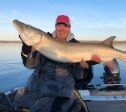
By smurfy · Posted

By leech~~ · Posted

By smurfy · Posted


By smurfy · Posted



By SkunkedAgain · Posted


By using this site, you agree to our Terms of Use and Privacy Policy. We have placed cookies on your device to help make this website better. You can adjust your cookie settings, otherwise we'll assume you're okay to continue.

Recommended Posts